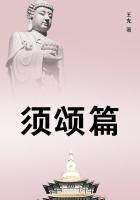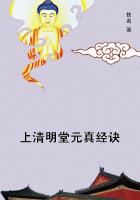The Aino or Ainu of Japan are said to distinguish various kinds of millet as male and female respectively, and these kinds, taken together, are called the divine husband and wife cereal (Umurek haru kamui). Therefore before millet is pounded and made into cakes for general eating, the old men have a few made for themselves first to worship. When they are ready they pray to them very earnestly and say: 'O thou cereal deity, we worship thee. Thou hast grown very well this year, and thy flavour will be sweet. Thou art good. The goddess of fire will be glad, and we also shall rejoice greatly. O thou god, O thou divine cereal, do thou nourish the people. I now partake of thee. I worship thee and give thee thanks.' After having thus prayed, they, the worshippers, take a cake and eat it, and from this time the people may all partake of the new millet. And so with many gestures of homage and words of prayer this kind of food is dedicated to the well-being of the Ainu. No doubt the cereal offering is regarded as a tribute paid to a god, but that god is no other than the seed itself; and it is only a god in so far as it is beneficial to the human body.
At the close of the rice harvest in the East Indian island of Buru, each clan meets at a common sacramental meal, to which every member of the clan is bound to contribute a little of the new rice. This meal is called eating the soul of the rice, a name which clearly indicates the sacramental character of the repast. Some of the rice is also set apart and offered to the spirits.
Amongst the Alfoors of Minahassa, in Celebes, the priest sows the first rice-seed and plucks the first ripe rice in each field. This rice he roasts and grinds into meal, and gives some of it to each of the household. Shortly before the rice-harvest in Boland Mongondo, another district of Celebes, an offering is made of a small pig or a fowl. Then the priest plucks a little rice, first on his own field and next on those of his neighbours. All the rice thus plucked by him he dries along with his own, and then gives it back to the respective owners, who have it ground and boiled. When it is boiled the women take it back, with an egg, to the priest, who offers the egg in sacrifice and returns the rice to the women. Of this rice every member of the family, down to the youngest child, must partake. After this ceremony every one is free to get in his rice.
Amongst the Burghers or Badagas, a tribe of the Neilgherry Hills in Southern India, the first handful of seed is sown and the first sheaf reaped by a Curumbar, a man of a different tribe, the members of which the Burghers regard as sorcerers. The grain contained in the first sheaf is that day reduced to meal, made into cakes, and, being offered as a first-fruit oblation, is, together with the remainder of the sacrificed animal, partaken of by the Burgher and the whole of his family, as the meat of a federal offering and sacrifice. Among the Hindoos of Southern India the eating of the new rice is the occasion of a family festival called Pongol. The new rice is boiled in a new pot on a fire which is kindled at noon on the day when, according to Hindoo astrologers, the sun enters the tropic of Capricorn. The boiling of the pot is watched with great anxiety by the whole family, for as the milk boils, so will the coming year be. If the milk boils rapidly, the year will be prosperous; but it will be the reverse if the milk boils slowly.
Some of the new boiled rice is offered to the image of Ganesa; then every one partakes of it. In some parts of Northern India the festival of the new crop is known as Navan, that is, new grain. When the crop is ripe, the owner takes the omens, goes to the field, plucks five or six ears of barley in the spring crop and one of the millets in the autumn harvest. This is brought home, parched, and mixed with coarse sugar, butter, and curds. Some of it is thrown on the fire in the name of the village gods and deceased ancestors; the rest is eaten by the family.
The ceremony of eating the new yams at Onitsha, on the Niger, is thus described: Each headman brought out six yams, and cut down young branches of palm-leaves and placed them before his gate, roasted three of the yams, and got some kola-nuts and fish. After the yam is roasted, the Libia, or country doctor, takes the yam, scrapes it into a sort of meal, and divides it into halves; he then takes one piece, and places it on the lips of the person who is going to eat the new yam. The eater then blows up the steam from the hot yam, and afterwards pokes the whole into his mouth, and says, 'I thank God for being permitted to eat the new yam'; he then begins to chew it heartily, with fish likewise.
Among the Nandi of British East Africa, when the eleusine grain is ripening in autumn, every woman who owns a corn-field goes out into it with her daughters, and they all pluck some of the ripe grain. Each of the women then fixes one grain in her necklace and chews another, which she rubs on her forehead, throat, and breast. No mark of joy escapes them; sorrowfully they cut a basketful of the new corn, and carrying it home place it in the loft to dry. As the ceiling is of wickerwork, a good deal of the grain drops through the crevices and falls into the fire, where it explodes with a crackling noise. The people make no attempt to prevent this waste; for they regard the crackling of the grain in the fire as a sign that the souls of the dead are partaking of it. A few days later porridge is made from the new grain and served up with milk at the evening meal. All the members of the family take some of the porridge and dab it on the walls and roofs of the huts; also they put a little in their mouths and spit it out towards the east and on the outside of the huts. Then, holding up some of the grain in his hand, the head of the family prays to God for health and strength, and likewise for milk, and everybody present repeats the words of the prayer after him.















